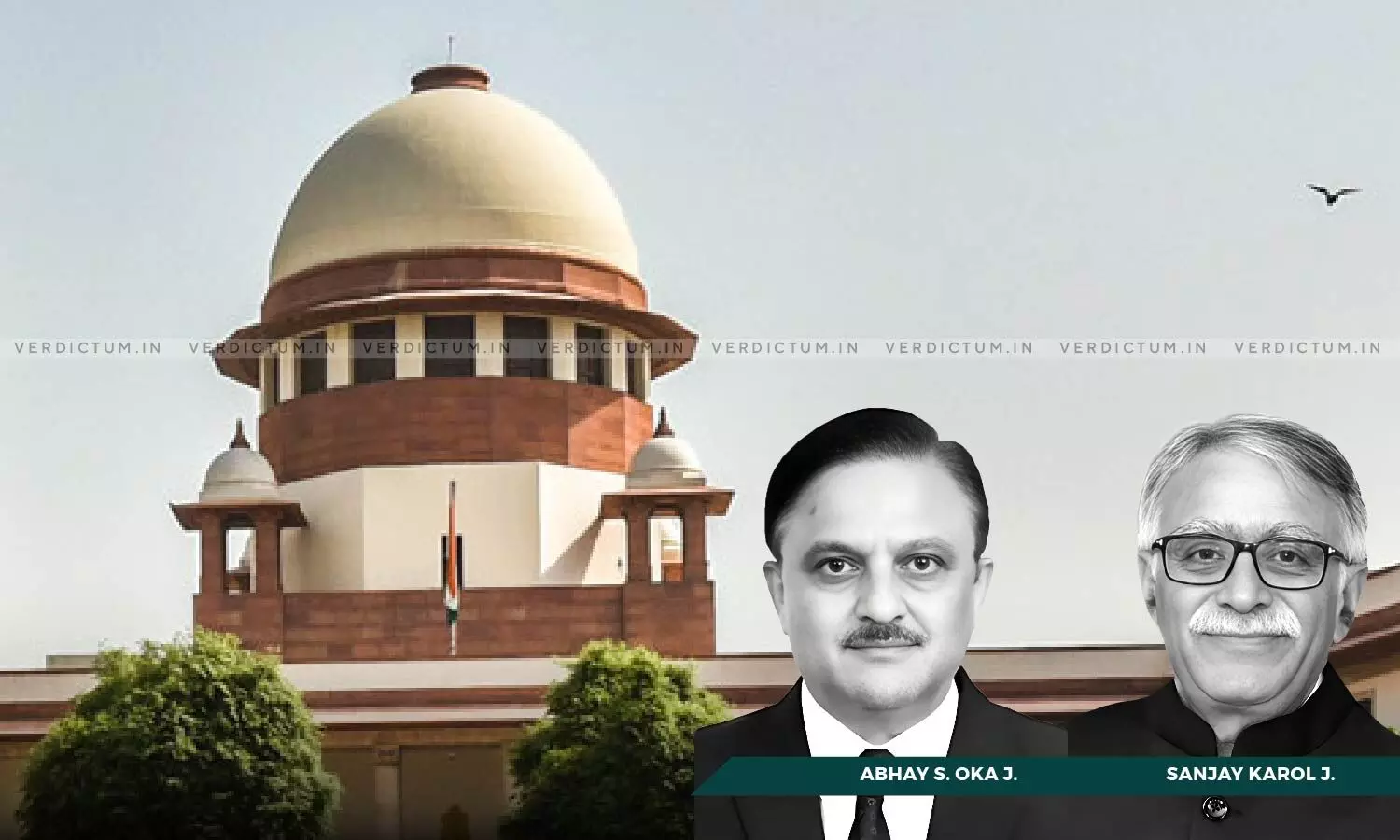
Plaintiff's Conduct Of Making False/Incorrect Statements In Plaint Disentitles Him To Relief Of Specific Performance: SC
 |
|The Supreme Court observed plaintiffs' conduct of making false and/or incorrect statements in the plaint disentitles them to relief of specific performance.
The defendant had executed an agreement for sale in favour of the plaintiff for a residential property for a specified consideration. Allegedly, after negotiations, the price was reduced, and a draft sale deed was executed. Despite the plaintiffs' claims of being put in possession of the property and their attempts to register the sale deed, the defendant failed to comply. Consequently, the plaintiffs filed a suit for specific performance and claimed damages.
The Court stated that the grant of a decree for specific performance is always discretionary under Section 20 of the Specific Relief Act, 1963 and noted “a person who seeks equity must do equity.”
Justice Abhay S. Oka and Justice Sanjay Karol observed, “the relief of specific performance is discretionary and equitable. Considering the plaintiffs' conduct of making false and/or incorrect statements in the plaint, which were very material, we hold that the plaintiffs are disentitled to relief of specific performance."
AOR Puja Sharma represented the appellants, while AOR Jyoti Mendiratta appeared for the respondent.
The Trial Court had declined to grant specific performance and instead awarded damages to the plaintiff. This decision was upheld by the District Court stating that the plaintiffs had failed to include all co-sharers of property as parties. The High Court had affirmed the Trial Court's decision, holding that the property was part of the defendant's Hindu Undivided Family property.
In an appeal before the Supreme Court, the appellant although had not received possession of the property, had stated in an affidavit that he had received possession of the suit property
The Court remarked that the plaintiffs had made false statements in the plaint, which disentitled them to relief of specific performance. The plaintiff had admitted that the suit property was HUF property. Even after that, the plaintiffs continued to prosecute the suit by seeking a decree in respect of the entire suit property.
The Court noted, “The plaintiffs did not give up their case concerning the shares of other co-sharers who were not parties to the suit.”
The Court held that the trial court, Appellate Court and High Court were justified in denying discretionary relief of specific performance to the appellants.
Accordingly, the Supreme Court partly allowed the appeal.
Cause Title: Major Gen. Darshan Singh (D) & Anr v. Brij Bhushan Chaudhary (D) (Neutral Citation: 2024 INSC 157)
Appearance:
Appellants: AOR Puja Sharma; Advocates Mohit Chaudhary, Puja Sharma, Kunal Sachdeva, Madhuri Jain, Prakhar Mithal, Srishti Bajpai and Aashish Arya
Respondent: AOR Jyoti Mendiratta and Sudhansu Palo; Advocates Ananya Basudha, Ravinder Pal Singh, Prasant Varma, Rakesh Kumar Palo, Ipsita Behura and Geeta Verma